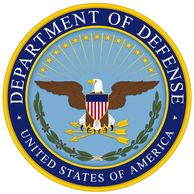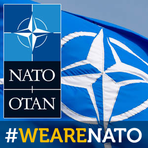The Balancing Act: Navigating the Tides of War and Politics
April 16, 2025, 4:13 am
In the world of geopolitics, the stakes are high. The recent meeting of defense ministers in Brussels highlighted the urgent need for a unified approach to the ongoing conflict in Ukraine. John Healey, the UK’s defense secretary, delivered a stark reminder: “We cannot jeopardize the peace by forgetting about the war.” This sentiment resonates deeply. It’s a call to arms, a rallying cry for nations to remain vigilant. The war in Ukraine is not just a distant conflict; it’s a daily reality for millions.
The coalition of 30 nations aims to establish a peacekeeping force. This initiative is not just a bureaucratic exercise; it’s a lifeline for Ukraine. The discussions at NATO headquarters are pivotal. They set the stage for future actions. Healey emphasized the need for pressure on Russian President Vladimir Putin. The message is clear: peace cannot be achieved through complacency.
The situation on the ground remains dire. Daily drone attacks and missile strikes continue to plague Ukrainian cities. The brutal fighting at the front lines is a stark reminder of the war’s harsh reality. As the coalition plans for a “reassurance force,” the question looms: will these efforts be enough? The prospect of a ceasefire feels distant. Russia has rejected proposals for a pause in hostilities. This rejection underscores the complexity of the situation.
Meanwhile, the geopolitical landscape is shifting. The U.S. has taken a step back from its traditional role in European security. Healey’s leadership in the Ukraine Defence Contact Group marks a significant change. It reflects a new era in U.S.-European relations. The dynamics are evolving, and the implications are profound.
In the U.S. Senate, a different kind of balancing act is unfolding. Majority Leader John Thune’s approach to governance is reminiscent of a tightrope walker. He navigates the complexities of party loyalty and the demands of a president who wields significant power. Thune’s “old-fashioned” style has kept the GOP aligned with Trump, but at what cost?
The Senate is a chamber of deliberation, yet it often feels like a battleground. Thune understands the need for teamwork. He emphasizes that for the GOP’s legislative agenda to succeed, unity is essential. This is no small feat in a polarized environment. The stakes are high as Republicans push for tax breaks and spending cuts.
Thune’s cautious support for Trump reflects a delicate balance. He acknowledges the president’s aggressive use of executive power. Yet, he also positions himself as a check on that power. This dual role is fraught with tension. Critics argue that Republicans must take a stand against Trump’s actions. The call for accountability grows louder.
As the Senate grapples with these issues, the implications for international relations are significant. Trump’s rhetoric has raised eyebrows. His comments about NATO and territorial ambitions have sparked concern. The damage to America’s reputation is not easily repaired.
Yet, amidst the chaos, there are glimmers of hope. Bipartisan support has emerged for critical legislation. Bills aimed at increasing penalties for fentanyl trafficking and addressing immigration issues have gained traction. This is a reminder that cooperation is possible, even in a divided chamber.
The Senate’s pace has quickened under Thune’s leadership. He aims to streamline processes and enhance efficiency. This incremental change may not seem monumental, but it’s a step toward a more functional legislative body. Thune’s commitment to allowing individual senators a greater voice is noteworthy.
As the world watches, the U.S. faces a crossroads. The decisions made in the Senate and at NATO will shape the future. The balancing act between supporting Ukraine and managing domestic politics is complex. The need for a cohesive strategy is paramount.
In conclusion, the interplay between war and politics is intricate. The situation in Ukraine demands attention and action. The coalition of nations must remain steadfast. Meanwhile, the U.S. Senate must navigate its own challenges. The stakes are high, and the consequences of inaction are dire. The world is watching, and history will judge the choices made today. The path forward is fraught with uncertainty, but one thing is clear: the time for decisive action is now.
The coalition of 30 nations aims to establish a peacekeeping force. This initiative is not just a bureaucratic exercise; it’s a lifeline for Ukraine. The discussions at NATO headquarters are pivotal. They set the stage for future actions. Healey emphasized the need for pressure on Russian President Vladimir Putin. The message is clear: peace cannot be achieved through complacency.
The situation on the ground remains dire. Daily drone attacks and missile strikes continue to plague Ukrainian cities. The brutal fighting at the front lines is a stark reminder of the war’s harsh reality. As the coalition plans for a “reassurance force,” the question looms: will these efforts be enough? The prospect of a ceasefire feels distant. Russia has rejected proposals for a pause in hostilities. This rejection underscores the complexity of the situation.
Meanwhile, the geopolitical landscape is shifting. The U.S. has taken a step back from its traditional role in European security. Healey’s leadership in the Ukraine Defence Contact Group marks a significant change. It reflects a new era in U.S.-European relations. The dynamics are evolving, and the implications are profound.
In the U.S. Senate, a different kind of balancing act is unfolding. Majority Leader John Thune’s approach to governance is reminiscent of a tightrope walker. He navigates the complexities of party loyalty and the demands of a president who wields significant power. Thune’s “old-fashioned” style has kept the GOP aligned with Trump, but at what cost?
The Senate is a chamber of deliberation, yet it often feels like a battleground. Thune understands the need for teamwork. He emphasizes that for the GOP’s legislative agenda to succeed, unity is essential. This is no small feat in a polarized environment. The stakes are high as Republicans push for tax breaks and spending cuts.
Thune’s cautious support for Trump reflects a delicate balance. He acknowledges the president’s aggressive use of executive power. Yet, he also positions himself as a check on that power. This dual role is fraught with tension. Critics argue that Republicans must take a stand against Trump’s actions. The call for accountability grows louder.
As the Senate grapples with these issues, the implications for international relations are significant. Trump’s rhetoric has raised eyebrows. His comments about NATO and territorial ambitions have sparked concern. The damage to America’s reputation is not easily repaired.
Yet, amidst the chaos, there are glimmers of hope. Bipartisan support has emerged for critical legislation. Bills aimed at increasing penalties for fentanyl trafficking and addressing immigration issues have gained traction. This is a reminder that cooperation is possible, even in a divided chamber.
The Senate’s pace has quickened under Thune’s leadership. He aims to streamline processes and enhance efficiency. This incremental change may not seem monumental, but it’s a step toward a more functional legislative body. Thune’s commitment to allowing individual senators a greater voice is noteworthy.
As the world watches, the U.S. faces a crossroads. The decisions made in the Senate and at NATO will shape the future. The balancing act between supporting Ukraine and managing domestic politics is complex. The need for a cohesive strategy is paramount.
In conclusion, the interplay between war and politics is intricate. The situation in Ukraine demands attention and action. The coalition of nations must remain steadfast. Meanwhile, the U.S. Senate must navigate its own challenges. The stakes are high, and the consequences of inaction are dire. The world is watching, and history will judge the choices made today. The path forward is fraught with uncertainty, but one thing is clear: the time for decisive action is now.

